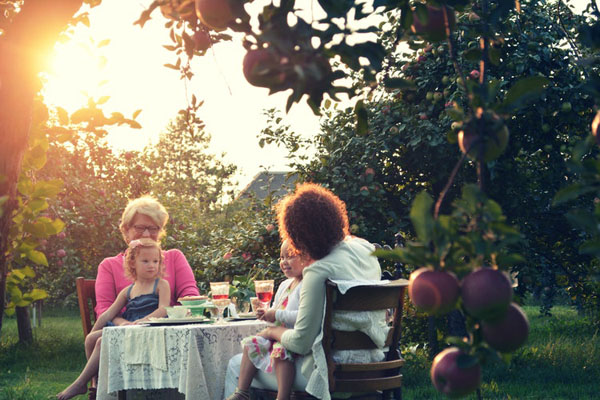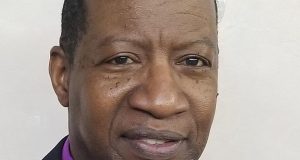By Yvonne Sam
Social and Political Commentator
If no child is born a racist and children learn what they see; then who is the guilty party?
The introduction to a special report on race and family in Parenting magazine, almost 20-plus years ago, read thus: “Racists are not born, but made. Racism begins not in courts and classrooms, lending institutions and housing authorities, but in homes. Specifically in the interaction between parents and children”. www.scarrittbennett.org/nobody-is-born-a-racist-you-have-to-be-taught.
From the outset, I can visualize readers’ reactions, after glancing at the title. While some are gasping and wondering what direction the ensuing topic will take, others may resort to a puzzling dismissal of “whatever next” or “not again”, and yet still there are others, who may read, with a checked air of inquiry geared towards ascertaining my view of the glass — whether it be half-full, or half-empty.
The truth be revealed, the topic, in itself, is one that is so often skirted over or totally avoided, despite its prominence in our present-day society. With the multiplicity of allegations of racism being hurled about in the media these days, it becomes somewhat difficult to decipher, who or what, is a racist? Who is not a racist?
Minorities accuse white people of racism, and White people in turn accuse minorities of racism. Just who is truly the racist? It is an unanswered call, and the true answer eludes us all.
We have seen adorable pics of a Black child embracing a White child, with the caption about children being innocent and not seeing color, or reminding us that they are not born racist. Such pictures tend to appear, in abundance, especially when discussions about racial biases are taking place.
We usually high-five one another, and talk about the next generation giving us hope, but tend to tread pussyfootesque around the reality that one day, these very same two children will likely distrust one another.
No one wants to talk about how children actually learn prejudices. Instead, we all sit around pretending that everything will be okay in the future.
Now get this straight, if we are really honest with ourselves, we will readily admit that things are not going to be okay in the future, and that we are part of the problem. It’s a bitter pill to swallow, but we need to acknowledge how we continue to perpetuate prejudice and/or racism in our everyday lives, and who learns from us.
Permit me to set things in a clearer context by specifying the two main elements: prejudice and racism. According to the Cambridge English Dictionary, prejudice is defined as an unfair and unreasonable opinion or feeling, especially when formed without enough thought or knowledge. Racism is the belief that some races are better than others, or the unfair treatment of someone because of his or her race.
Here are some ways, in which, as adults, we pass down prejudice that can lead to the perpetuation of racism in children.
Talking from a politically-correct stance, we say one thing but yet do another. We repeatedly state that we will never judge a book by its cover, yet how many of us actually follow through with this, when it comes to people?
Have you ever prevented your child from playing with certain kids at the playground, because you just did not like the mother, the father or both, because they were just not the right race?
Have you ever prevented your child from playing with a particular child because of his/her same-sex parents?
It is easy, yet injudicious, to think that the children are not paying attention. The American College of Pediatrics has affirmed that children are like sponges and soak up everything to which they are exposed. www.acpeds.org/children-are-sponges. No child is born with hate.
During tense moments, we let offensive things come from our lips, and we are all guilty of this one. When listening to the news and we hear of a shooting, especially by the police, immediately, openly and without any degree of restraint, we make pejorative remarks about the ethnicity of the likely perpetrator, and our disdain for those “white people”.
Heavens forbid, but if there is no indictment, then there is nothing to stem the flow of racial remarks that follow, as we yell at the television. We must learn to change the television channel, and avoid those tense moments, especially when young children are in our presence.
While we are no strangers to the harsh realities of racial issues, we must, nevertheless, be committed to provide the children with the information from a more neutral standpoint, and allow them to come up with their own ideas, based on their own experiences.
If you remain silent, failing to speak when your family or friends discuss controversial issues, and express their prejudices, loud and clear, in front of the children, then such behavior implies silent agreement with the sentiments being expressed. If you want to raise children free from prejudice and racial biases, then you need to model that behavior, by speaking up in front of everyone at the time.
Remind family and friends that you will not allow them to express prejudice against any group in front of your child, as it is counter-productive to the person you want him/her to become. Our prejudices can make the difference between our children being bullies or advocates.
When disparaging comments are made about same-sex couples ostentatiously displaying their love in public, or seeing these relationships being shown on television, we are telling our children that it is okay to show prejudice to those individuals who do not perform their roles in society the way we deem appropriate.
An act, as simple as levelling criticisms at the way young women dress that are so tempting to men, is teaching that only certain persons deserve respect. Sadly, we are teaching them to stereotype groups and leading them down the path of prejudice, although we think that we are merely protecting them.
The dangers that we are concerned about are definitely real, but we must explain those dangers to them. Instead of saying that the manner of dressing makes the female look like a hooker, we must sit down and explain the ways they may be viewed by people who are racist, sexist and/or prejudiced. The shame is then put on society and not the victim(s).
Granted, raising children is no easy task, and raising children, who are socially conscious and aware, in a positive manner, is even harder. The hardest thing however, is admitting that we are part of the problem. It’s a hard to pill to swallow, but we must acknowledge how we continue to perpetuate prejudice and/or racism in our everyday lives and its effect on the children.
Aleuta- The struggle continues.
Yvonne Sam, a retired Head Nurse and Secondary School Teacher, is Vice-president of the Guyana Cultural Association of Montreal. A regular columnist for over two decades with the Montreal Community Contact, her insightful and incursive articles on topics ranging from politics, human rights and immigration, to education and parenting have also appeared in the Huffington Post, Montreal Gazette, XPressbogg and Guyanese OnLine. She is also the recipient of the Governor General of Canada Caring Canadian Citizen Award.
 Pride News Canada's Leader In African Canadian & Caribbean News, Views & Lifestyle
Pride News Canada's Leader In African Canadian & Caribbean News, Views & Lifestyle






